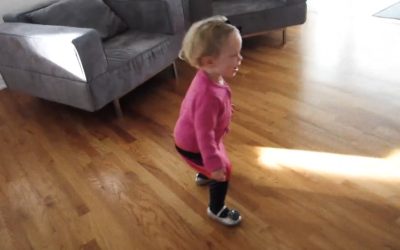Jen grew up to be a stunningly beautiful girl. When she was in junior high, her mother began to reveal the circumstances of her birth. Jen’s mother was twelve years old when she was raped. All Jen knows about her father is that he was a neighbor. Her mother didn’t know him. It was several months before she even knew she was pregnant.
When her family found out, they decided that it was impossible for her to keep a baby that was conceived in such a way. Although they were “personally against abortion,” this was a situation that justified it. Rape is unacceptable, and pregnancy just put one terrible experience upon another. She was a child herself. There was no way she could raise a child. She would have to have an abortion.
Jen’s mother was hurting and humiliated from her recent experiences, and all the adults were telling her that this was the quickest way to forget about the rape and get on with her life. She didn’t even feel like it was a baby inside her. All she knew was that she wanted her memories erased. She wanted to start clean.
However, as the scheduled abortion drew near, she felt a growing dread. It was as though her heart was resisting. As much as she wanted to end the pregnancy, a deeper instinct, some deep down emotion, told her to hold on to her baby. She didn’t know why.
The day of the abortion came. Jen, who was already a healthy little baby inside her mother, was happily unaware of the kind of death prepared for her. She was probably doing her little exercises or sleeping peacefully when her mother was admitted to the clinic. The abortion was a saline injection. Perhaps Jen tried to swim away from the needle as it probed for her. Perhaps she cried as her skin began to burn, but no one heard her. The doctor injected the burning salt, gave her mother some pills and told her to come back the next day.
Jen’s mother went home in tears and spent the day and following night in a waking nightmare. Being handled and probed in the clinic made her feel sick, so soon after her assault. Images of death kept haunting her mind. “I’ve killed my baby,” was all she could think. She also felt excruciating pain in her lower abdomen, and bled on and off. Sometimes she prayed that she could turn back time. Sometimes she despaired.
The next day, she went back to the clinic. “I’m sorry,” she was told, “the doctor isn’t in yet.” While she was waiting for the doctor, some nurses gave her an examination. She was numb from pain and exhaustion when they brought her some unexpected news. “You’ll have to come back later this afternoon. The abortion didn’t work.”
Jen’s mother sat in the clinic, stunned. Perhaps she would be able to give birth to her baby after all! From that moment on, she felt that she’d been given a second chance. She went home and demanded to keep her baby. When her family saw that she was determined, they gradually let go of their abortion idea and left her alone. She began to do what she could to take care of herself and her baby.
Jen was born a few months later, a tiny, beautiful baby with blue eyes and black hair. The only harm from the saline was some mild scarring on the skin on her side and back. Her mother never found out why Jen was spared from the effects of the injection. Perhaps the nurse administered the wrong dose, or the doctor miscalculated where to inject.
Jen grew up to be a stunningly beautiful girl. When she was in junior high, her mother began to reveal the circumstances of her birth. Jen forgave her mother and the two have a remarkable friendship to this day. They are united by their passion for spreading the message of life.
Jen is the result of a botched abortion. Today, Jen is a mother with children of her own. The failure of the abortionist was the success of a beautiful life. So many people are against abortion personally, but believe “it must be legal for cases of rape and incest.” When Jen tells her story, few people can hold onto this position. To suggest that victims of rape should have abortions is to suggest that Jen should not be standing in front of them. It is to insist that Jen’s mother should have gone through life haunted by her abortion, and without Jen, who is her best friend. It is to insist that Jen’s life doesn’t count.
Jen’s life is a powerful counter-message. Even though she was conceived in rape, her birth was the beautiful flower growing in the ghetto of her mother’s past. She maintains that children that may result from rape are the “other victims”. Like their mothers, they are innocent victims of a violent crime. Her mother feels that giving life to her daughter has truly “turned back time.” It was her daughter’s love that healed her memories of the sexual assault and enabled her to start clean.




